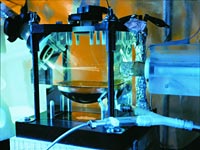|
|||||||||||
| Biomedical Engineering | |||||||||||

Biomedical Engineering is the application of engineering techniques and analysis to problem solving in medicine and the biological sciences. The engineering disciplines embraced within the scope of Biomedical Engineering include: Electrical Engineering, Mechanical Engineering, Computer Engineering and Chemical Engineering.
Biomedical Engineering provides a direct input to enhancing the quality and scope of health care through the application of engineering analysis to biological systems and introducing engineering principles to medical and surgical interventions. Biomedical engineers are exposed to many fields of study in engineering, medicine and biology. Due to this broad experience, biomedical engineers find employment in hospitals, government bodies, industry or academic areas. Specific areas of employment include: design of medical instrumentation and prostheses; involvement in the development, manufacture and testing of medical products; and the management of technology in the hospital system. Studying Biomedical Engineering at UNSW The study of Biomedical Engineering at UNSW is primarily through the Graduate School of Biomedical Engineering (www.gsbme.unsw.edu.au). For undergraduate students, UNSW offers a concurrent Bachelor of Engineering/Master of Biomedical Engineering program which takes five years to complete. A number of postgraduate programs are also offered.
Biomedical Engineering can be studied as
|
|||||||||||



